| Reflective Professionals (Agents of Change) develop productive relationships with school colleagues, parents, and community agencies to form collaborations that promote school and personal career goals, culminating in teacher and student growth. Commitment is made to continuous life-long reflection on practice, learning about up-to-date innovations and implementing effective practices that help all students achieve high standards of learning. Professional association memberships, educational conference participation, and successful development of expertise in content, pedagogy and leadership – mirroring national standards for effective teaching – serve to recast Reflective Professionals' (Agents of Change) roles and responsibilities to school reform. |
Knowledge Base
Above all, the mission of professional development is to “prepare and support educators to help all students achieve high standards of learning and development” (U.S. Department of Education, 1994, p. 63774). Professional development focuses on teachers as central to school reform; reflects the best research and practice in teaching, learning and leadership; and promotes problem solving as a major teacher function. High quality professional development would ensure “the career-long development of teachers whose confidence, expectations, and actions influence the teaching and learning environment” (U.S. Department of Education, 1994, p. 63773). For teachers who are beginning their careers, praise from students, written recognition from colleagues and building administrators, and gaining control over their instructional decisions are powerful incentives for advancing their professional development (MacDonald & Healy, 1999). They are able to reflect on and continually evaluate the effects of choices and actions on others and actively seek out opportunities to grow professionally. They are also able to foster relationships with school colleagues, parents and families, and agencies in the larger community to support students’ learning and well-being (National Council for Accreditation of Teacher Education, 2002, p. 18).
A major factor that contributes to advancement of professional development is collaboration. For the novice teacher, learning to teach and learning to interact with colleagues are important needs. Beginning teachers grow professionally as they observe their colleagues teach, learn about exciting and worthwhile innovations and strategies, acknowledge the diversity of good ideas that different teachers bring to the profession, and make decisions about what and how they will incorporate into their own approaches.
(Lanier, 1988; Routman, 2000). Teachers learning about teaching from each other gradually build the mutual trust necessary to engage responsibly in problem-solving the needs of diverse learners. When teachers make connections, they form a community, thereby counteracting the isolation that pervades the teaching profession, fractionalizing programs of teaching and learning (Holmes Group, 1995). “When teachers are engaged together in thinking aloud about their work and its consequences, the results are a greater sense of professionalism and a stronger and more cohesive instructional program (Griffin, 1991). Through partnerships with colleagues, beginning teachers begin to view themselves as life-long learners and their school as a place where adults can work together and learn together throughout their professional careers.
Professional development must be planned and structured in ways that acknowledge and respond to the various career points of individual teachers. Beginning teachers are concerned initially with professional survival: establishing personal adequacy; sorting through the curriculum, mastering teaching skills, methods and technology; and impacting the achievement of students (Fuller, 1969; Yarger and Mertens, 1980). Beyond this induction level, as teachers gain intellectual, social and emotional experience, they become concerned about placing classroom practice into the larger context of school practice in the educational careers of children; they learn to apply techniques and perspectives of inquiry; and they assume a group role in activities designed; . . . “to increase the power and authority of their shared work” (Griffin, 1991).
Through the initiatives of the reform movements of the 1990s, reflective professionals are now expected to accept new and additional roles and responsibilities. Educators committed to attaining and remaining at the top of their profession invest much energy in staying informed and increasing their skills. They are then in a position to exercise leadership among colleagues (Danielson, 1996). Beginning teachers may be expected to take the risks associated with responsibilities to collaborate within and across grade levels and school districts, community agencies, parents and administrators to ensure that the instructional program has high, credible and achievable standards (e.g., National Council of Teachers of English, National Council of Teachers of Mathematics), assisting state movements to develop professional portfolio assessment techniques, or modeling teaching strategies and demonstrating their usefulness for their colleagues (Lieberman & Miller, 1991).


